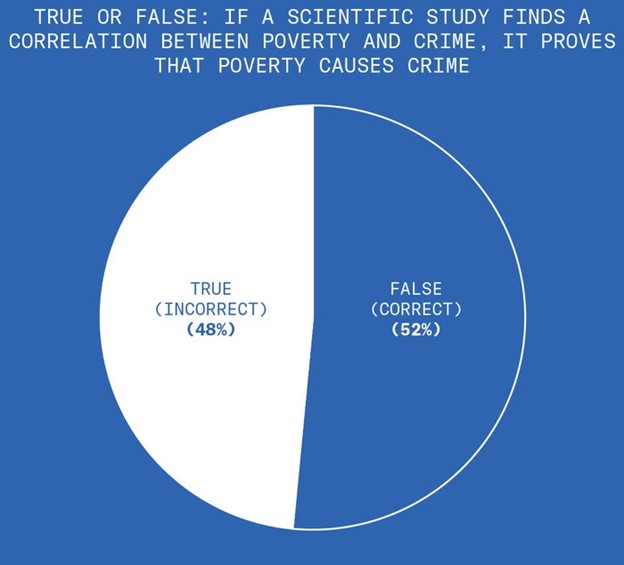Former BBC DJ, John Peel“Somebody was trying to tell me that CDs are better than vinyl because they don’t have any surface noise. I said, ‘Listen, mate, life has surface noise.”

I love that lead-in quote and not simply because I’ve been a vinyl record enthusiast and collector since a guy named Reagan lived in the White House. I also love it because I’m a HI (Human Insight) enthusiast and embracing life’s surface noise is critical in the pursuit of human insight.
Given the current state of AI enthusiasm, I should stipulate that I believe the emerging generative AI technologies have already and will continue to have a significant impact on the insights and CX spaces (and on the world in general). I’m not debating that. I am, however, concerned that all the hype around AI could lead to practices that make gaining true human insight harder (gasp). Why this blasphemy? Please hang with me a minute.
Back to surface noise. Here’s the fascinating thing about us humans: We can be wildly inconsistent and contradictory and all without realizing it (or at least without being willing to admit it). That’s part of the surface noise. There are plenty of published academic pieces to back me up on this (Don’t believe me? Ask ChatGPT). But, let’s face it, academic research can be dry and difficult to process. Fortunately, there is plenty of accessible (and more fun) stuff out there to show how baffling humans can be.
A few years ago, for example, Cards Against Humanity worked with Roper to conduct several waves of a “Public Issues Survey.” In that work you can find some fun examples of how people (both liberals and conservatives, by the way) can hold seemingly inconsistent/contradictory views on issues they find important. Some of the juicier findings include: Many conservatives who believe in free speech also believe athletes should not be allowed to sit during the national anthem. Not to leave anyone out, many liberals who think it’s fine for movie stars to make crazy amounts of money believe CEOs are paid too much. And I’ll present this little illustration (from the same study) that highlights a slightly different point but should be baffling nonetheless:

For the record (pun intended but I promise this is not a newsletter about vinyl records), it’s worth pointing out that vinyl enthusiasts are not immune to this natural human tendency toward contradiction and seemingly inconsistent beliefs/actions. While acknowledging tradeoffs of the medium (like the potential for surface noise), collectors with resources well beyond mine can spend tens or hundreds of thousands of dollars building stereo systems in pursuit of perfect sound from their pressed wax. While I’ve never seen one, the most expensive turntable I could find is from German firm AVDesignHaus. It clocks in at more than $650,000. I’m happy with my much more modest system, thank you. It’s a mix of vintage gear sourced primarily from estate sales and thrift shops.
So where am I going with all of this? I’m getting there but we need another quote to set up the big, climactic finish:
“I used to think I was an artist. Come to find out, I’m just a beer salesman. I’m okay with that.”
Musician James McMurtry during a live performance
I led Insights, CX, and Strategy teams at large companies for more than 20 years and while there may have been times when I wanted to think of myself as a human insight artist, that was never my job. In that world (and likely the world anyone unfortunate enough to be reading this works in) our pursuit of human insight is simply a means to an end. That end is to sell more stuff (okay, many would argue that for public companies increasing the stock price is the ultimate goal, but that’s a blog for another time).
And who buys stuff? Hint: It isn’t AI. Humans buy stuff and the companies that understand those buyers the best and use that information wisely will indeed sell more stuff.
A few weeks ago I participated in the IIEX.AI event. I had an opportunity to watch several presentations and I saw a good example of how I think we could let AI interfere with our ability to effectively gather human insight. The presentation was, “Can Synthetic Respondents Provide Natural Insights?” by Steve Hansen at Phase 5. If you aren’t familiar with the synthetic respondent concept, it is pretty much as it sounds. Instead of humans responding to your research questions, AI tools provide the answers. One of the things Steve and his colleagues found when comparing synthetic to real respondents is that the synthetic data was generally cleaner or more sterile than that gathered from real (non-synthetic, I suppose) people. In other words, the synthetic data was void of the surface noise of life that was easy to see in the human responses to the same questions.
In a recent piece for AdAge, Jeff Charney, Founder and CEO of MKHSTRY and Former Progressive CMO had this to say: “AI is a once-in-a generation wave that has more potential than any innovation in recent history. We can either let it crash over our brands or we can use it to better our jobs, our work and our companies.”
Jeff was CMO at one of the companies I worked for and he’s a brilliant guy. I think he’s right about AI, and I think “use it to better our jobs, our work and our companies.” is a critical part of that quote. This is recognition of AI as an enabler. AI is becoming an important tool that can make what we do faster, easier, cheaper, and more—but it doesn’t become the work or replace the end goal of the work we do.
All of us in the business of human insight, customer experience, or marketing need to learn and embrace AI but we should be cautious not to let it hide the complexity, the contradictions, the inconsistencies that define the humans we seek to understand and communicate with. If we miss the surface noise, we fail.